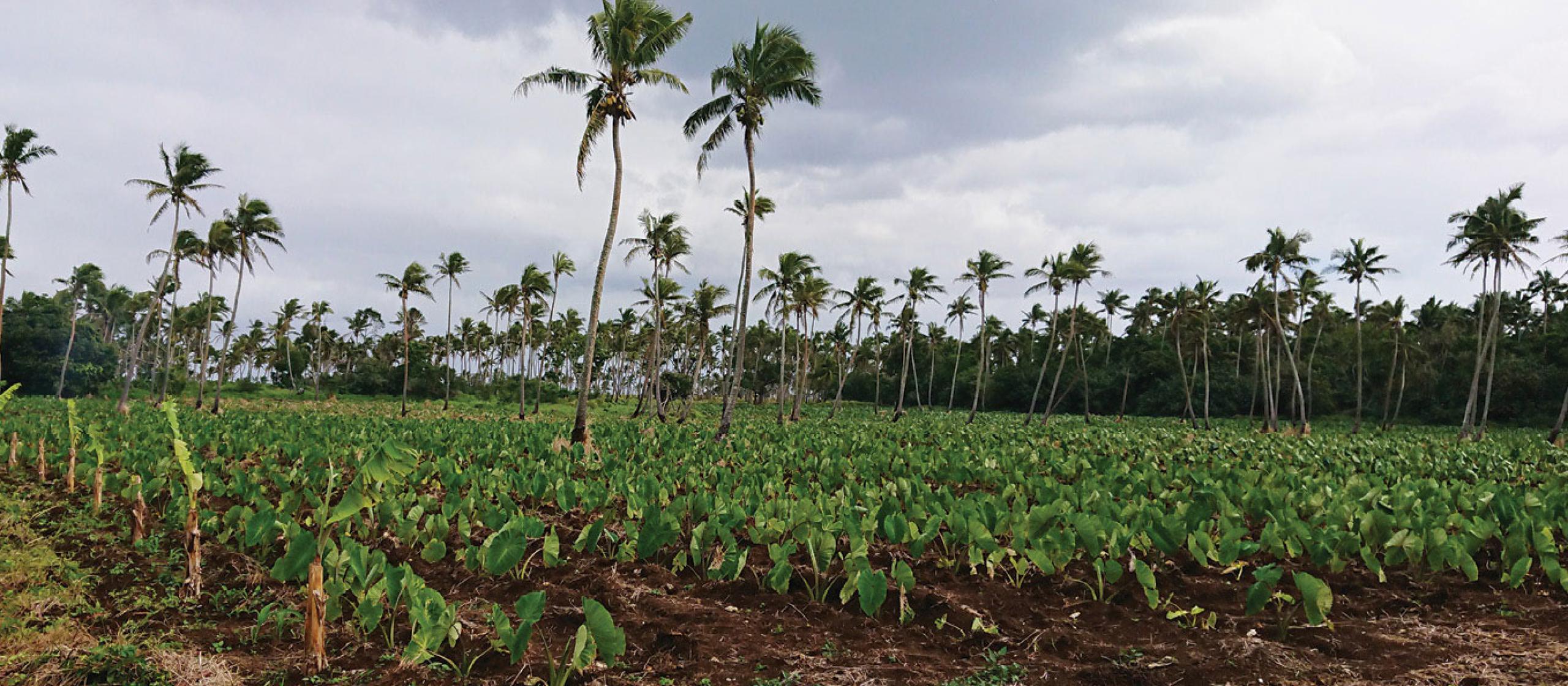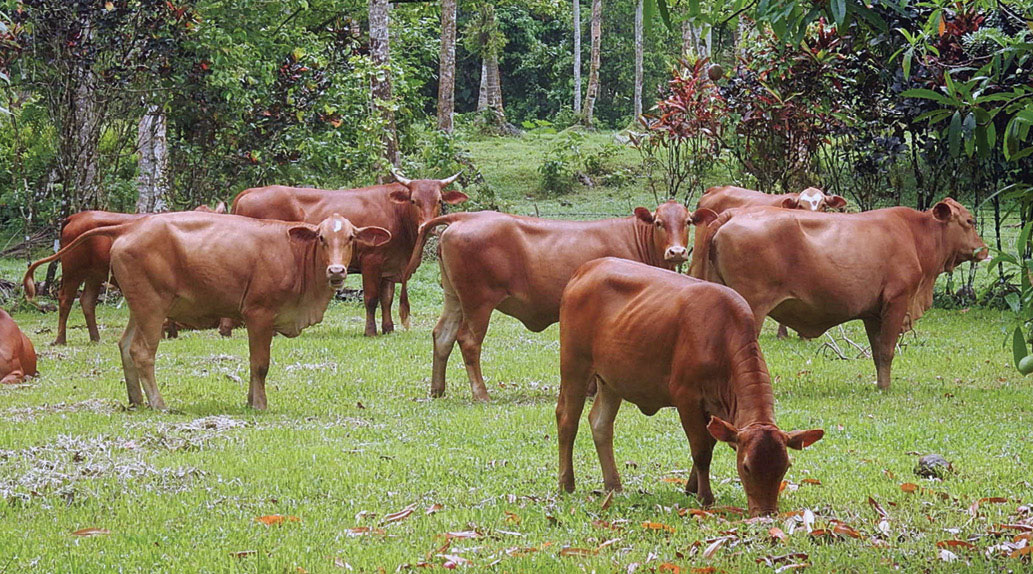- HomeHome
-
About ACIAR
- Our work
- Our people
-
Corporate information
- ACIAR Audit Committee
- Commission for International Agricultural Research
- Policy Advisory Council
- Agency reviews
- Executive remuneration disclosure
- Freedom of information (FOI)
- Gifts and benefits register
- Information publication scheme
- List of new agency files
- Contracts
- Legal services expenditure
- Privacy impact assessment register
- Commonwealth Child Safe Framework
- Benefits to Australia
- Careers
- 40 years of ACIAR
-
What we do
- Programs
- Cross-cutting areas
- Resources
- Where we work
-
Funding
- Research projects
- Fellowships
-
Scholarships
- John Allwright FellowshipScholarships to study in Australia for ACIAR partner country scientists to have Australian postgraduate qualifications
- ACIAR Pacific Agriculture Scholarships and Support and Climate Resilience Program
- Alumni Research Support Facility
- Publications
- News and Outreach
Date released
26 March 2021
Farmers in Tonga and Samoa are all set to be part of a ground-breaking new ACIAR activity to test conservation agriculture and sustainable intensification (CASI) in the Pacific region, alongside partners The University of Melbourne, Lincoln University New Zealand, The University of the South Pacific (USP) and the Pacific Community (SPC).
‘This has been a dream of the farmers for a long time,’ says Research Fellow at USP, Lau Viliamu Iese.
‘They have been crying out for help to analyse their systems at a farm level to see how to increase food and incomes and, at the same time, improve soil health and water management and address the changing climate.
‘We are small island developing states with high climate-change vulnerability, increasing populations and limited land availability, so our land is being cropped over and over. Farmers are torn between the need to use more fertiliser and the need to improve soil health for the long term.’
Exploring the potential for CASI in the Pacific region has been the goal of a Small Research Activity (SRA), which is now informing the final proposal for a larger project.
Sustainable intensification is considered a pathway to more restorative and regenerative agriculture, with CASI bringing together conservation agriculture, soil health, water management, integrated pest management and improved genetics.
Project leader Professor Tim Reeves from The University of Melbourne says while systems incorporating CASI practices have provided clear benefits in South Asia, there is a major knowledge gap about the potential for CASI in the Pacific region.
‘A 2020 meta-analysis of CASI research in South Asia reported improvements in crop yields of 5.8%, a jump in net economic returns of 25.9% and reductions in greenhouse gas emissions of 12–33%,’ says Professor Reeves.
‘We are optimistic that appropriate CASI systems can deliver a win-win for Pacific island countries too, and we will also be modelling the factors affecting future scaling-out, such as technologies, input availability, labour and knowledge networks.’
Farmer support
Lau Viliamu Iese says farmers in Samoa and Tonga are already very engaged with the project and keen to take part in farm-based trials as part of the larger project.
‘The first time I explained the benefits of the project to members of the Pacific Island Farmers Organisation Network in Tonga, they had immediate buy-in,’ he says.
‘We have already held meetings with Project Advisory Groups in both countries involving partners like MORDI (Mainstreaming of Rural Development Innovations Tonga Trust)—an NGO that works with all farmers through community development activities.
‘They don’t have a research arm but they have a research dream. These trials will provide the facilities, capacity and finance to fulfil and realise that dream, and hopefully by gathering evidence on the ground we can tap into a huge “copycat” culture to disseminate the information.’
Some 40 farmers in each country will be approached to answer comprehensive questionnaires in the local language to provide some of the farmer-focused data to assess strengths and weaknesses of CASI in each system and its capacity to reduce threats from the changing climate.
Solutions that fit
The SRA has reviewed agricultural systems, identified their key features regarding climate, and proposed a typology of systems to be used for prioritising future conservation agriculture-based sustainable intensification, transformational climate adaptation and mitigation research.
In the larger project, CASI principles will be applied in several different farming systems in each country—in Tonga, in the traditional farming system and the commercial or monocropping system, and in Samoa, in the integrated livestock/cropping system and taro farming system.
Professor Reeves says Pacific island farmers face real concerns about climate change, with rising sea levels, pressure on soils and major losses from diseases in taro and some other root crops, combined with the challenge of producing more from a finite area of land already being cropped.
But the project won’t be instigating unrealistic changes, he says. Researchers will work with farmers to integrate improved technologies to benefit the whole system rather than replace their traditional methods.
For Pacifc islanders, listening and understanding creates a strong partnership and this has been a very respectful collaboration that recognises local mechanisms and capacity and leadership on the ground
Lau Viliamu Iese
‘Sustainable intensification is about producing more with fewer inputs, and this project provides the perfect opportunity for farmers to try to increase production levels and deal with the stressors brought about by the change in climate conditions,’ explains Professor Reeves.
‘Soils are the engine room of productivity, so reduced cultivation, more mulch and the use of legumes for biologically fixed nitrogen are expected to be critical. If the soil holds more water and there is better root and plant growth and nutrient recycling, plants are more resilient to climate shocks.
‘Improved water management and more judicious use of pesticides through rotation and greater diversification should mean less herbicide-resistant weeds or resistant pests, and improved genetics may mean farmers can source a crop variety that is more heat and drought tolerant, for example.’
Setting up for more
Researchers are hoping to perform trials on several commercial farms and NGO lands in both countries, as well as at USP’s campus in Tonga, USP’s Samoa campus of the School of Agriculture and Food Technology and government research stations.
‘At a national level the Ministry of Agriculture, Food, Forests and Fisheries is also excited because Tonga is the only Pacific island country that includes agriculture as a mitigation sector in its Nationally Determined Contribution ,’ says Lau Viliamu Iese.
While the SRA has been serving as a scoping analysis to assess the strengths and weaknesses of CASI in the Pacific islands, it also provides the business case for the larger ACIAR project expected to commence in the next 6–12 months.
‘We are setting up research partnerships for the future but the relationship between farmers and our partners in ACIAR and the universities, SPC and NGOs goes much further than that,’ Lau Viliamu Iese says.
‘For Pacific islanders, listening and understanding creates a strong partnership and this has been a very respectful collaboration that recognises local mechanisms and capacity and leadership on the ground.
‘We have been trusted to strategically lead the on-ground negotiations, engagement, who to bring to the table, even the selection of the farming systems, which is very welcome.’
The benefit of CASI, he says, lies in the fact that its combination of systems taps into the traditional cultural values of farming in the region.
‘In the Pacific islands, farmers may only have half an acre (2,000 square metres) or up to eight acres (3.24 hectares), but the land has a very special meaning—it’s part of their identity, the land their forefathers farmed.
‘They have excellent awareness of soil health but are torn between the need for increased production in the short term to feed more people and the awareness that traditional agriculture was based on long fallow periods to allow the land to recover.
‘This project is about making Pacific island communities more profitable, resilient and adaptable, and leaving a lasting legacy of improved health and wellbeing of our people and the environment.’
Key points
- Pacific islander farmers have welcomed a new ACIAR-supported project investigating conservation agriculture and sustainable intensification (CASI).
- The project aims to improve farmer profitability, adaptability and resilience against a changing climate.
- Adoption of CASI practice has improved crop yields, increased net economic returns, and reduced greenhouse gas emissions in other parts of the world and it is hoped the same benefits can be found in the Pacific region.
ACIAR project
Conservation Agriculture and Sustainable Intensification of Smallholder Farming Systems in Pacific Countries as a Pathway to Transformational Climate Change Adaptation and Reducing GHG Emissions, CROP/2020/185.




